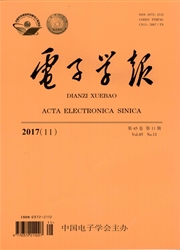

 中文摘要:
中文摘要:
由于具有处理废弃物和联产电能的双重功效,微生物燃料电池(Microbial Fuel Cells,MFCs)已被认可为最具前景的可替代、可再生的清洁能源之一.目前,针对基于水环境的微生物燃料电池(Aquatic Microbial Fuel Cells,AMFCs)的研究已经取得了实质性的研究成果,部分研究人员已开始工程实用阶段的研究.但是,工作地理环境的限制严重约束了AMFCs的应用范围.陆基微生物燃料电池(Terrestrial Microbial Fuel Cells,TMFCs)能够解决AMFCs工作地理环境受限的缺点,是拓展MFCs应用领域的一个新突破口.本文提出并详细介绍了一种TMFC的结构和菌群培养过程,测试了其产电性能.所设计的TMFC开路电压(Open Circuit Voltage,OCV)约为0.75V,输出功率密度约为3m W/m2,这些数据均在目前MFCs研究报道的合理范围内.测试了温度和土壤含水率对TMFC产电性能的影响,对进一步提高TMFC产电性能具有实验指导意义.
 英文摘要:
英文摘要:
Microbial fuel cells (MFCs) are considered as a promising alternative renewable energy source because of its power generation and wastewater trealment performance. The power generation performance of aquatic microbial fuel ceils (AM- FCs) is verified, and the applications of AMFCs are approved. However, the application range is limited for AMFCs because of the water environment they need. Terrestrial microbial fuel cells (TMFCs) can overcome the shortcoming and expand the application ar- eas of MFCs. A TMFC reactor is proposed and the structure and inoculation procedure ate presented. The power generation perfor- rnance of the proposed TMFC is tested. The open circuit voltage (OCV) is about 0.75V and the output power density is about 3mW/n~, which are normal values in the previous researches of AMFCs. The relationsbip between environment temperature, soil water content and the output power density of the proposed TMFC are tested by experiments. Experimental results show the effects of the TMFC power generation performance by environmental factors. The results will contribute to improving the power generation performance of TMFCs.
 同期刊论文项目
同期刊论文项目
 同项目期刊论文
同项目期刊论文
 期刊信息
期刊信息
